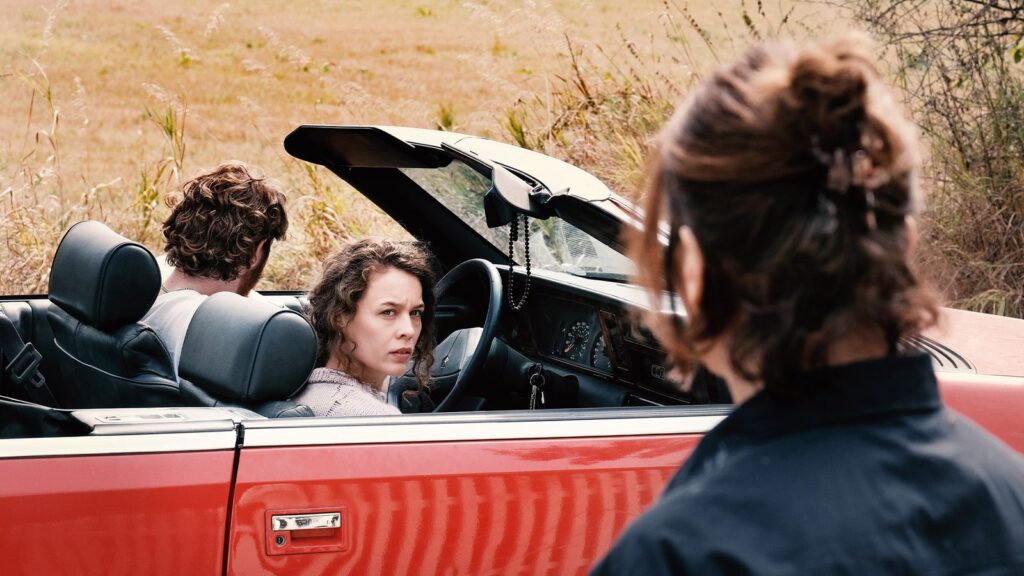Title: Miroirs No. 3
Foreign Title:
Year: 2025
Country: Germany
Language: In German with English subtitles
Director: Christian Petzold
From the very first frame, it’s clear that something is amiss. Laura, a music student from Berlin, is traveling to the countryside with her inattentive boyfriend. She appears unsettled, unhappy. They join a couple of his friends for the trip, but upon arrival Laura abruptly asks to return home. Reluctantly, her boyfriend drives her back to the station. On the way, while arguing they almost crash into a local woman painting her fence, a woman that briefly locks eyes with Laura moments before. The boyfriend speeds off and crashes shortly after. The woman, Betty, hears the crash, and rushes to the scene and finds the boyfriend has died. Laura has survived and Betty helps to revive Laura and report the accident. Laura asks to stay with her.
Betty agrees, and the two form a fragile, tender bond. Betty is gentle and protective, while Laura adapts quickly to her new life. Still, an air of unease lingers, it is the uncomfortable feeling that something is not quite right. Laura meets Betty’s husband and son, who do not live with her, and it becomes clear that secrets are being kept, truths withheld, and it all points toward an inevitable end.
Miroirs #3 is a modest, understated film, one that avoids overt drama even in its conclusion. Yet it is exquisitely crafted. Petzold pares dialogue down to the bare minimum, relying instead on silences, small gestures, and fleeting glances. It is a quiet film, where music sets a lot of the atmosphere. The cinematography is delicate and precise: static shots, frames built through doors, windows, and interiors that mirror the characters’ emotional states. The lighting, too, is subtle and beautiful. Above all, the acting is remarkable. Paula Beer, the director’s main actress in recent films, as Laura, and Barbara Auer as Betty, deliver a powerful hypnotizing performance. The four central performers make full use of the film’s restrained style, turning limitations into strength.
The themes—memory and remembrance, relationships and identity—are familiar from Petzold’s earlier work. Yet at times, Miroirs #3 feels less like a thematic exploration of loss and grief than a deliberate experiment in minimalist filmmaking.
It might not be Petzold’s strongest work, and seems occasionally uneven in its narrative flow, but it still is an elegant, engrossing film.




